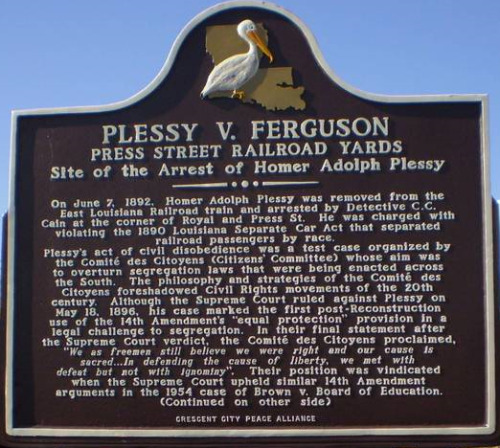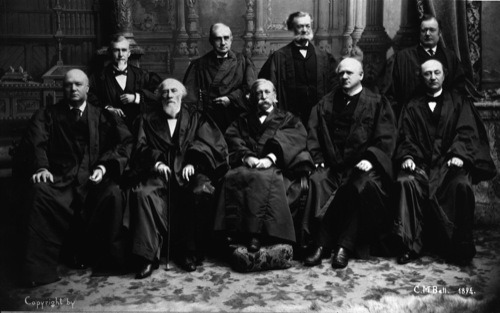peashooter85:Manufacturing a Plaintiff — Plessy vs. FergusonIn Constitutional law a test case is a c
peashooter85:Manufacturing a Plaintiff — Plessy vs. FergusonIn Constitutional law a test case is a case purposely created by activists to challenge a specific law in the hopes that it will be struck down in court. The use of test cases today is not uncommon, but its use dates back to the late 19th century. One of the first test cases in history was the landmark case called Plessy v. Ferguson. In 1896, a group in Louisiana called the New Orleans Committee of Citizens chose to challenge Separate Car Act, which stated that railroad cars had to be segregated based on race. Whites occupied one care, while black people or people of mixed race had to sit in another car to the rear. While the Committee was dedicated to overturning the law in the courts, there was one problem. There were far too few people willing to challenge the law personally. Thus, the Committee decided to take things into their own hands. A Committee member named Homer Plessy volunteered to become the plaintiff. Plessy was 1/8th African American, and thus under the law had to sit in the rear car. Of course, being 1/8th black, Plessy would have been indistinguishable from any other white man. So when he boarded the “whites only” car of a train on June 7th, 1892, he had to openly announce to the employee checking tickets that he was of mixed blood. At that point, the employee said something along the lines of “I’m sorry sir, but you have to sit in the blacks only car.” Of course, Plessy refused.Almost on cue, a man sitting near Plessy announced himself as an officer of the law and arrested Plessy. It turns out, the officer was a private detective hired by the Committee to arrest Plessy according to plan. Plessy was hauled off by the detective to a local jail.The case was appealed through state and Federal Courts until eventually it was heard before the Supreme Court on April 13th, 1896. Unfortunately for the Committee, their test case backfired when the Supreme Court decided in a 7 to 1 decision that the Louisiana law was Constitutional and did not violate anyone’s 14th Amendment rights so long as the railcars were “separate but equal”. The decision would reaffirm and solidify segregationist policy in the US until the Brown v. Board of Education case in 1954. Homer Plessy was ordered to pay a $25 fine for violating the law, which was covered by the Committee. -- source link
Tumblr Blog : peashooter85.tumblr.com



